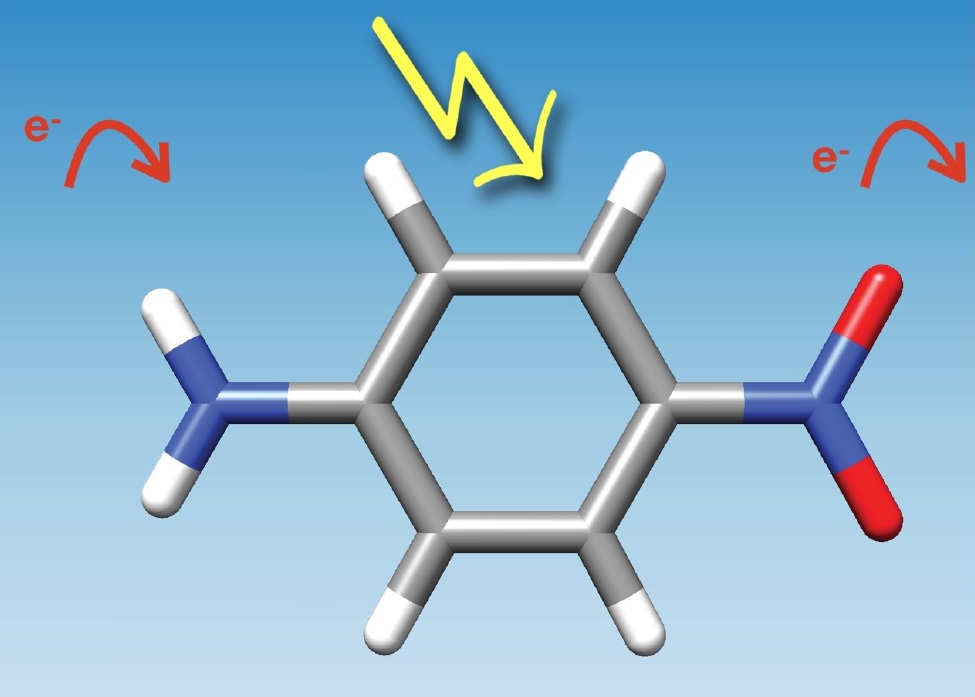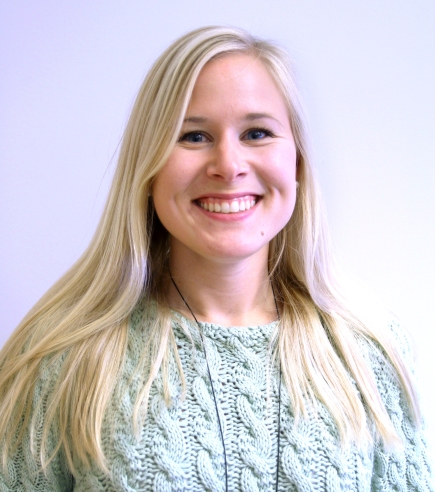Meet the Young CAS Fellows for 2022-24: Ida-Marie Høyvik

Ida-Marie Høyvik, an associate professor at the Norwegian University of Science and Technology

(NTNU), will lead the Young CAS Fellow project A wave function based framework for describing photoactivated redox processes.
In her Young CAS Fellow project, Høyvik will gather a group of collaborators to establish a new and rigorous framework to theoretically describe and explore photoactivated redox reactions between molecules.
Photoactivated redox reactions are processes that are activated by light where some atoms or molecules release electrons that are then taken up by other atoms or molecules.
‘When describing molecules with wave function theory, we usually require the wave function to reflect a physical state in which the number of electrons is conserved,’ Høyvik writes in her project proposal. ‘However, there exist examples where electron conservation is not physical. An important example is molecular junctions, in which a molecule acts as a bridge for electron transport between some contact points. Similarly, electron transport can occur between molecules or molecular constituents in redox processes, in which one molecule is reduced (gain electrons) and one molecule is oxidised (lose electrons).’
The project is one of two Young CAS Fellow projects due to start in August 2022.
We spoke with Høyvik about her project and her thoughts about having been selected for the Young CAS Fellow programme for 2022-24.
Congratulations! Could you briefly tell us about your project?
Thank you!
The project deals with wave functions for molecules in which the number of electrons is not conserved. This is somewhat unconventional since most molecular systems we deal with in electronic structure theory have a fixed number of electrons. However, the aim is here to describe molecular processes in which this flexibility in electron number and conservation is needed, such as in redox or electron transport processes. Specifically, the project aims at developing the theory such that also the molecules' interaction with light can be accounted for. This is interesting with respect to photoactivated applications of such processes.
Please tell us a bit about yourself, your research interests and your career path.
I am a theoretical chemist and previously my research interests were focused around linear-scaling and multilevel approaches to electronic structure theory. I'm now interested in how to describe and predict how molecules and their intrinsic properties can be exploited in processes related to electron transport. I am very fascinated by exponential parametrisations of orthogonal transformations, and I therefore use this for parametrising the particle-breaking states I am working on. With respect to career path, I did my Ph.D. in electronic structure theory at Aarhus University in Denmark and a short postdoc at Ludwig Maximilian University of Munich. Now, I am an associate professor in the Department of Chemistry at NTNU.
I am very fascinated by exponential parametrisations of orthogonal transformations, and I therefore use this for parametrising the particle-breaking states I am working on.
Why did you apply to the Young CAS Fellow programme?
I applied to the Young CAS Fellow programme because it represents a unique possibility for me to extend my scientific network and gather collaborators to develop the project. The Young CAS Fellow programme enables an interdisciplinarity which allows me to explore the scientific edges of the project which would be difficult otherwise.
The Young CAS Fellow programme enables an interdisciplinarity which allows me to explore the scientific edges of the project which would be difficult otherwise.
What in particular are you looking forward to as a future Young CAS Fellow?
I very much look forward to spending time with old and new collaborators to discuss exciting science. In addition to advancing my project, which I am really excited about, I will learn new things and gain new perspectives from my collaborators. I hope for discussions which take me far outside my scientific comfort zone.
I hope for discussions which take me far outside my scientific comfort zone.